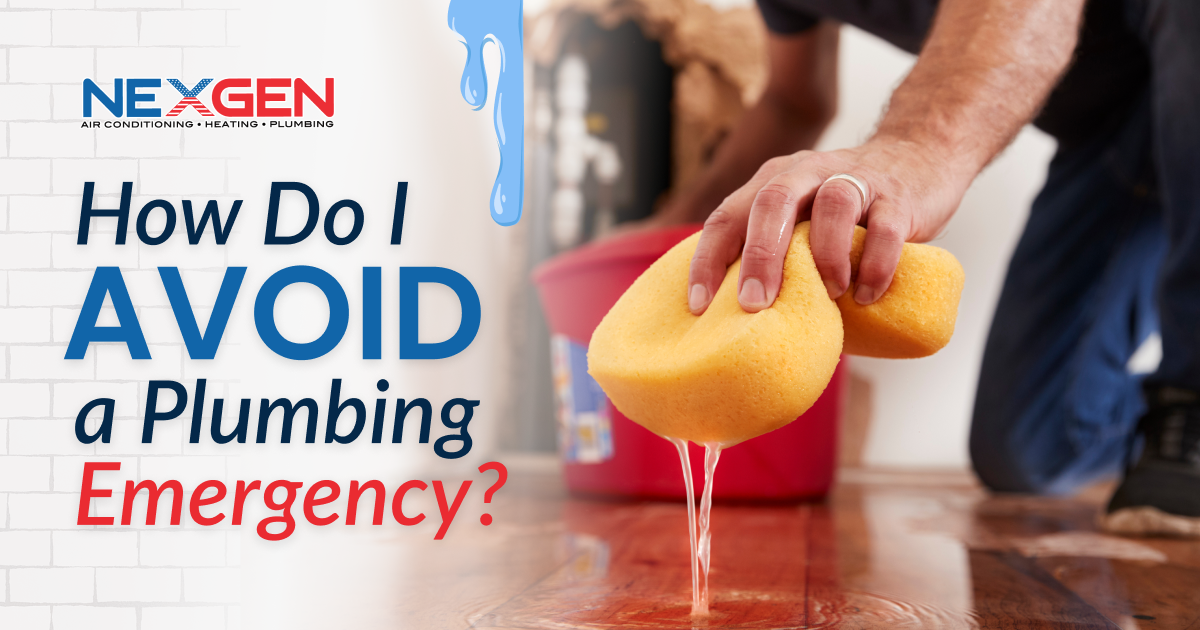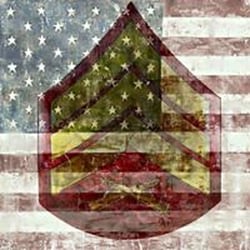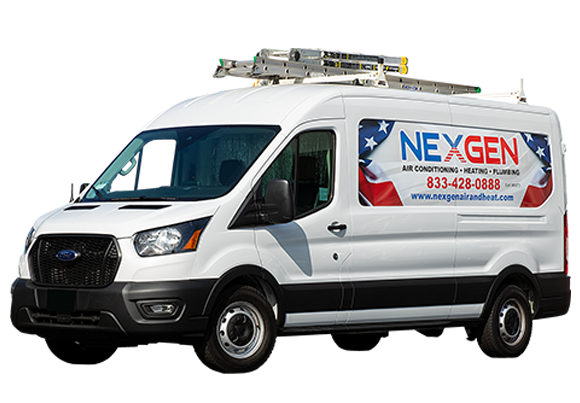How Do I Avoid a Plumbing Emergency?

Plumbing emergencies are stressful, disruptive, and messy. Gallons of water can wreak havoc on your home before an emergency plumber arrives. However, pipe failures, overflows, and other mishaps can be avoided. Here are tips for preventing a plumbing emergency and keeping your home plumbing system in good shape.
Watch What You Put Down Drains
Whether using a sink, toilet, or garbage disposal, you can easily clog the drain line if you’re not careful. A clogged drain can cause an overflow and even damage pipes. To avoid an emergency due to a drain clog:
- Don’t Pour Grease, Fats, or Oils Down the Sink: These can become sticky and harden as they cool and attract other debris. Let these materials solidify before throwing them in the trash.
- Only Flush Toilet Paper Down the Toilet: Avoid flushing “flushable” wipes (they can get stuck in pipes) and don’t use drop-in toilet bowl cleaners. Items such as tissues, power towels, baby wipes, wrappers, and feminine products should also never be flushed.
- Be Mindful When Using Your Garbage Disposal: The disposal makes it easier to discard food scraps, but don’t add fibrous foods like celery or banana peels, cooking grease or fats, or hard items like bones or eggshells. Also, avoid putting coffee grounds, pasta, or rice in the garbage disposal.
Protect Your Drains
Use drain covers and strainers to prevent hair and other materials from clogging shower and bath drains. A combination of hair, soap, and personal care products can form a soggy mess in a drain line. Installing a simple product can prevent a plumbing emergency involving a clogged drain.
Check for Leaks Regularly
It can be easy to pass on a tiny drip or leak as not a big deal. However, if there’s any dripping or moisture around sink faucets or a valve, pipe connection, hose, or fitting, call an emergency plumber. Refrigerators, washing machines, and dishwashers are also prone to leakage. Consider replacing rubber appliance hoses with stainless steel reinforced ones as they are less likely to leak or break.
At the very least, a small leak can waste hundreds of dollars. But failing to fix one in time can lead to a costly outcome. Make a habit of checking for small leaks to avoid such a situation. Common signs, aside from water stains, include musty odors, a high water bill, a flooded/muddy lawn, and foundation cracks.
Monitor the Water Pressure in Your Home
You don’t need an exact measurement of water pressure (although gauges are available). The pressure in each home varies slightly. However, take note of any sudden drops in water pressure when washing the dishes or taking a shower. If you suspect it's from a faucet or shower head, clean the aerators. But if you don’t know why the pressure is dropping, call a plumber to check for a hidden plumbing or water main issue.
Know Where Your Water Shut Off Valve Is
Sometimes plumbing emergencies and accidents happen. Know where the main shut-off valve and fixture shut-offs are located and how to use them before anything goes wrong. When it does, you can turn the water supply off, preventing damage to floors, walls, and ceilings. Rather than replacing building materials, you may just need to dry out some wet towels or rags.
Avoid Drain Cleaning Chemicals
Store-bought drain cleaners contain chemicals that can dissolve clogs and the material that makes up your pipes. If you use them too much, you might ultimately deal with a burst pipe. To avoid this, you can use a drain snake to physically dislodge whatever is clogging the drain. However, repeated clogs should be dealt with professionally.
Flush Your Water Heater Tank Once or Twice a Year
Sediment from minerals in water can build up in a water heater tank. When this happens, the appliance will produce less hot water. It will also run more frequently, leading to increased energy usage and potentially overheating and cracking the tank’s lining. You can flush the tank if you’re equipped to, but a plumber can more thoroughly clean the tank during annual maintenance.
Schedule Regular Plumbing Maintenance
A routine inspection can avoid having to call an emergency plumber. An inspector can address slow drainage, clogged drains, low water pressure, toilets that don’t flush properly, and issues with water heaters. Skilled plumbers have various tools to test and inspect plumbing systems. They also use advanced, non-invasive methods to address minor issues and even perform some major repairs or replacements.
Call NexGen 24/7 for an Emergency Plumber
If you have a plumbing emergency, our fully licensed and insured technicians can reach your home quickly and provide an efficient solution. They’re equipped to find the cause and fix it fast. No matter the size or scope of the problem, they’ll fix it right, from a drain clog to a malfunctioning garbage disposal to a burst pipe or a gas leak. Contact us even if there’s just a small water leak. For emergency plumbing service and competitive pricing in Southern California, call NexGen at (805) 301-6788 today.





















